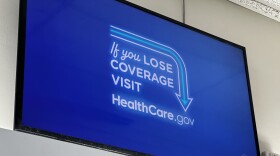-
Ascension Texas and Blue Cross and Blue Shield of Texas faced an end-of-year deadline to agree on a contract or risk some patients losing in-network care at Ascension facilities, including many in the Austin area.
-
Public health officials warn law enforcement and border patrol activity are discouraging people from getting vaccines and other types of preventive health care. A North Texas health leader was among the officials who highlighted the issue.
-
Texas is set to receive the largest award from the federal Rural Health Transformation Program — with federal officials awarding $1.4 billion to the state over five years. The state received millions more in funding that it asked for in its application.
-
UT Southwestern was selected by the state to run the Texas Behavioral Health Center — the first state behavioral health hospital in the Dallas-Fort Worth Metroplex. The new hospital, set to open this summer, will provide inpatient services for people with serious mental health issues
-
Texas’ entire House GOP delegation voted this week for a health care package that lets the tax credits lapse. They will be forced to vote on a three-year extension of the subsidies in January.
-
The Trump administration Thursday proposed two rules targeting hospitals that treat transgender children and youth using Medicare and Medicaid as the lever. The move would affect trans youth who have private insurance, too.
-
Shanice Jordan is one of the four million Texans enrolled in an Affordable Care Act health plan. But subsidies that make plans through the federal health insurance marketplace more affordable are set to expire at the end of the year — meaning Jordan and other Texans will premiums that are more than double what they currently pay.
-
The North Texas doctors are accused of illegally providing gender-affirming care to minors and falsifying records to cover it up.
-
The federal health insurance marketplace open enrollment deadline for plans that start on Jan. 1 is less than a week away. There's still a lot of uncertainty surrounding coverage, but advocates say everyone with an Affordable Care Act should verify their information and select a plan ahead of Monday’s deadline.
-
The UNT Dallas campus in southern Dallas has a new addition: a 120,200-square-foot STEM building. The university said the new space, along with new programs and partnerships with UNT Health in Fort Worth, will expand capacity to train students in the health care and science workforce pipeline. The goal is to address workforce shortages in Dallas and beyond.
-
Under new requirements, “able-bodied” recipients could lose access to benefits for three years if they go three months without documenting working hours.
-
About 1,500 rural hospitals were eligible to convert to “Rural Emergency Hospitals” beginning in 2020. Researchers at UT Arlington want to take a closer look at the 40 hospitals that entered the program to understand whether it has improved access to care in rural communities.
Play Live Radio
Next Up:
0:00
0:00
Available On Air Stations












